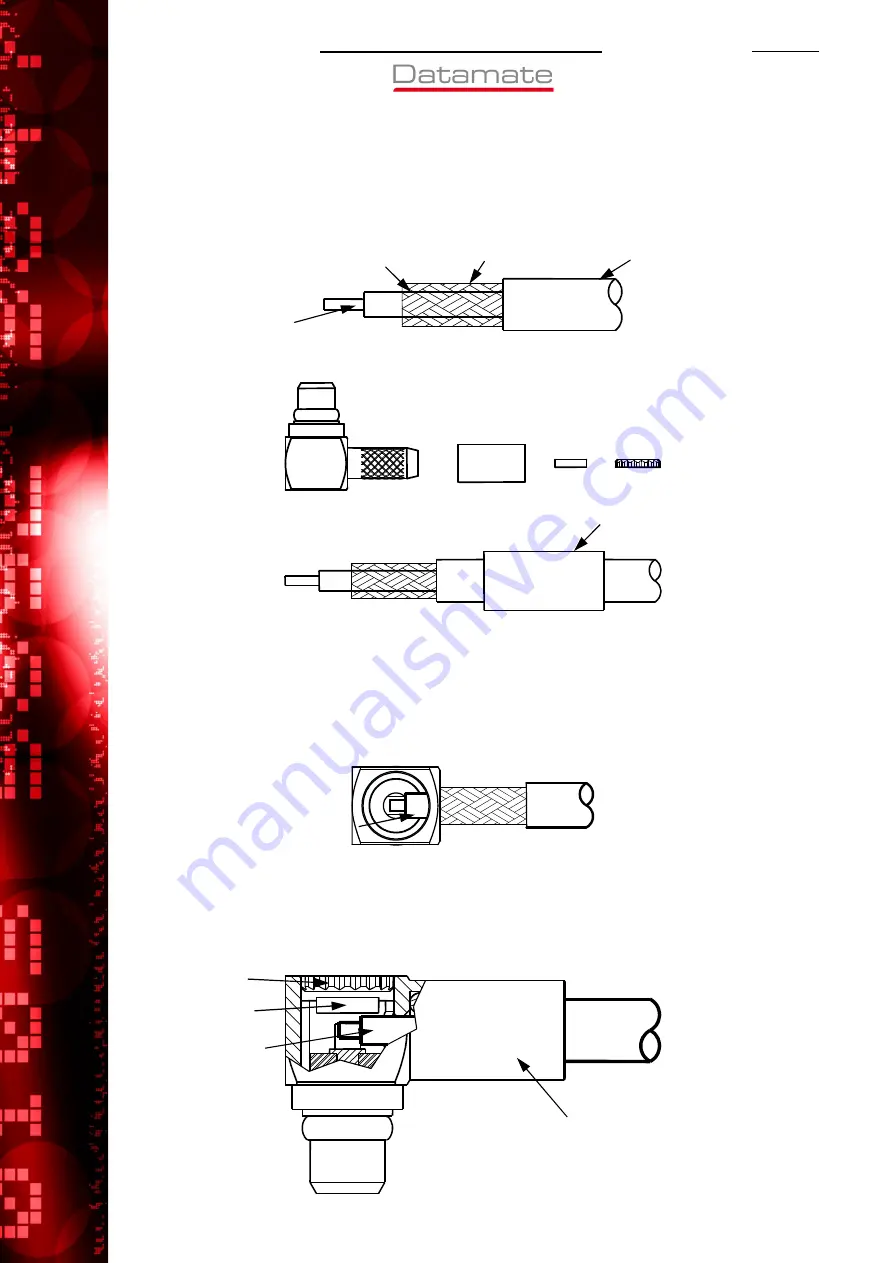
COMPONENT SPECIFICATION
C00525
C00525
C00525
C00525
- 11 -
APPENDIX 2 – COAX CONTACT DETAILS (continued).
A2.3. COAX ASSEMBLY INSTRUCTIONS – M80-308/309, M80-318/319.
1) Strip cable to dimensions shown against relevant part (see appropriate engineering
drawings).
2) Identify pieces of coax connector to be assembled.
3) Slide sleeve onto cable past stripped area.
4) Push the cable and sleeve into the body, as far as it will go. The cable inner
conductor will be visible through the hole in the top of the coax body, and should go
into the slot in the inner contact of the body. Make sure that the braid goes outside
and over the end section.
5) Solder the cable inner conductor to the body inner contact. When cool, place the
insulator inside the top, and press the cover into place. Slide the sleeve up to meet
the coax body, and hexagonal crimp in place.
Inner Conductor
Outer Insulator
Body
Sleeve
Inner Insulator
Braid
Sleeve
Insulator
(PTFE)
Cover
(metal)
Solder here
Insulator
Cover
Crimp here
Inner Conductor

































